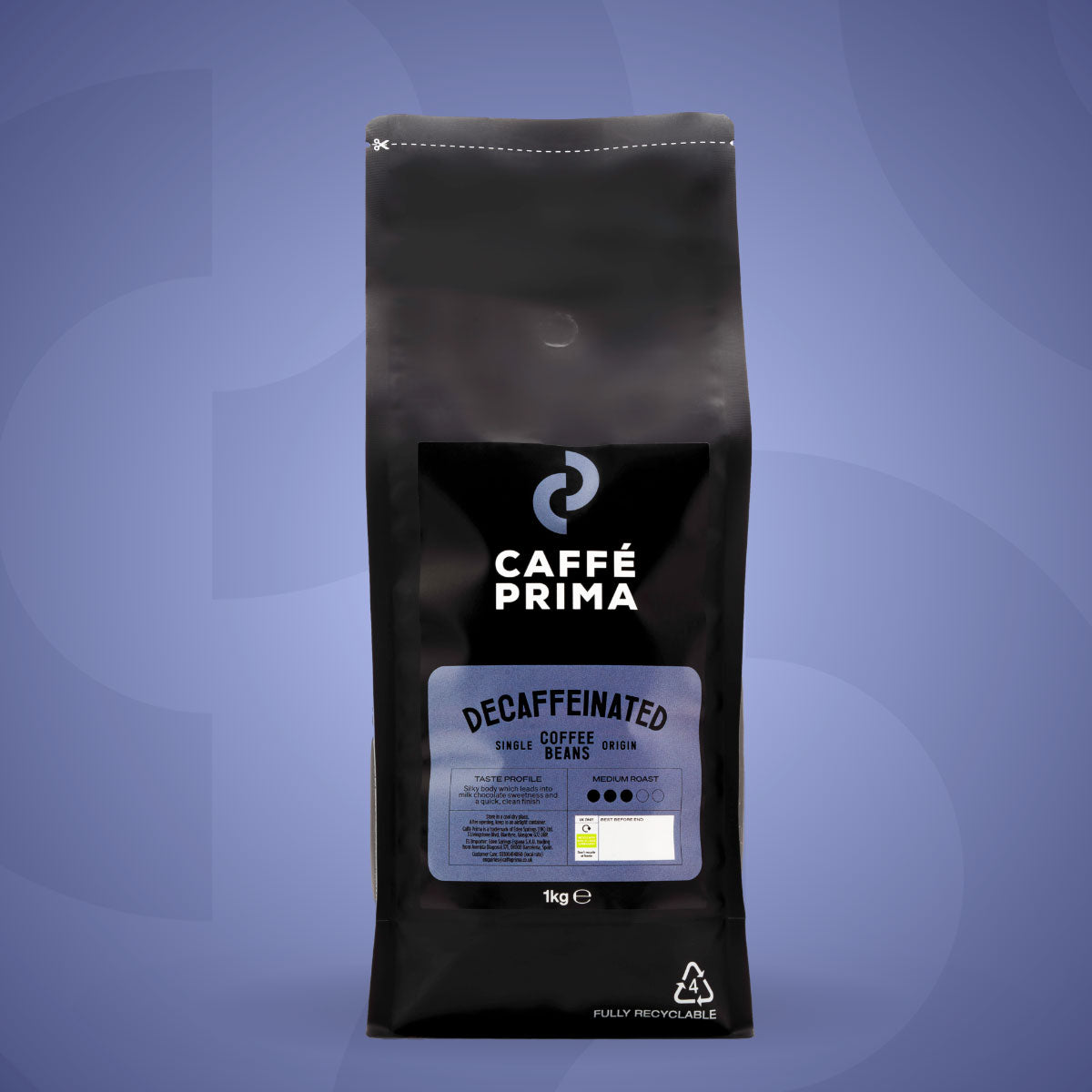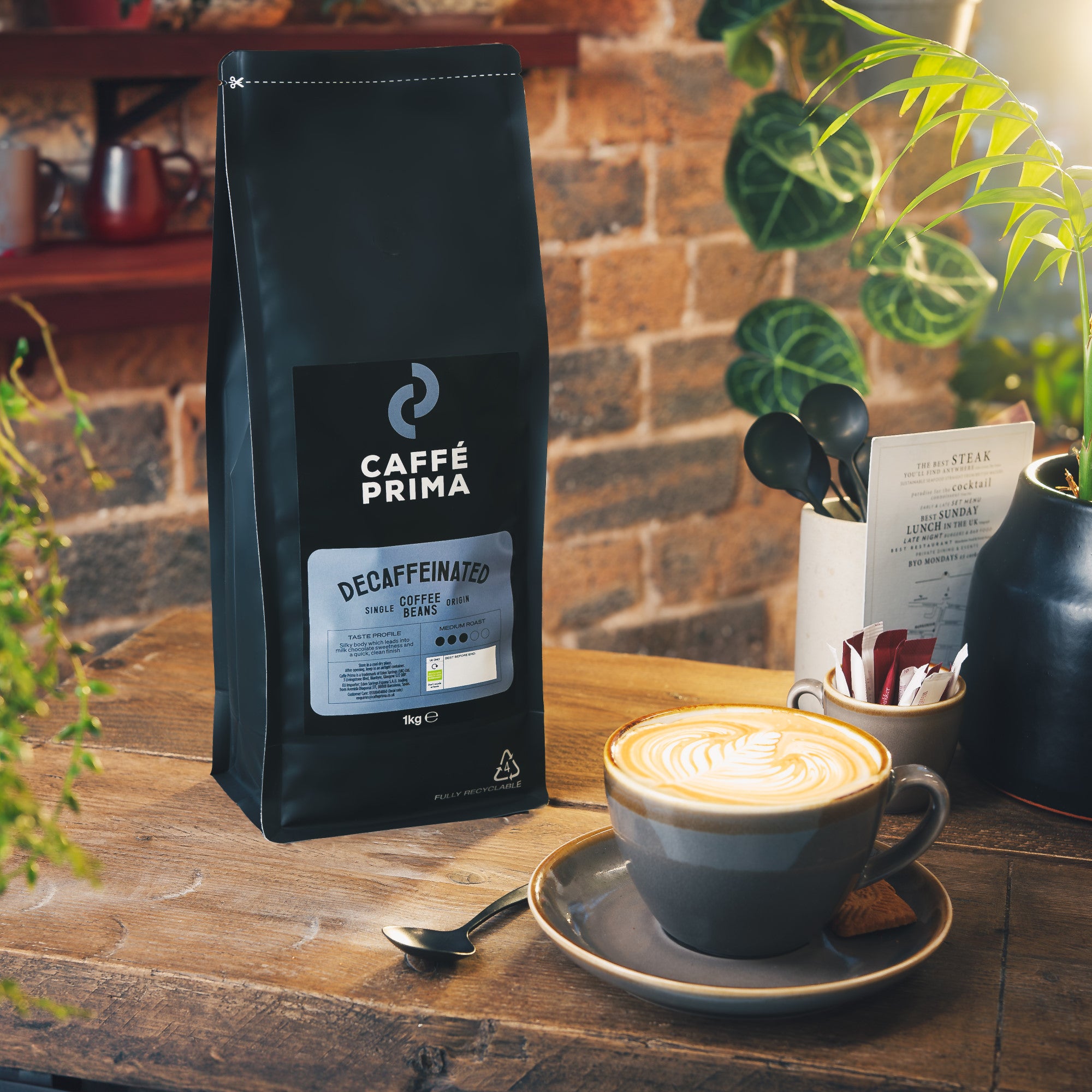How is coffee decaffeinated?
There are several methods for removing caffeine from coffee beans. The main approaches include the Swiss Water Process (using only water and carbon filters), the CO2 Process (using pressurised carbon dioxide), and solvent-based methods. Each technique aims to extract caffeine while preserving the bean's natural flavours. The best decaffeination processes maintain the coffee's original character while removing 97-99% of the caffeine.
Does decaffeinated coffee still contain caffeine?
Yes, decaffeinated coffee is not completely caffeine-free. By definition, decaffeinated coffee must have at least 97% of the caffeine removed. A typical cup of decaf coffee contains about 2-5mg of caffeine, compared to 80-100mg in a regular cup. This minimal amount is usually not enough to cause the stimulating effects associated with caffeine, making it suitable for most people who are limiting their caffeine intake.
Does decaffeination affect the taste of coffee?
The quality of decaffeinated coffee has improved dramatically over the years. While older decaffeination methods could strip away flavour compounds along with caffeine, modern processes are much more selective. Our Brazilian Arabica decaf beans maintain their rich, chocolatey profile through careful processing. Many coffee drinkers now find it difficult to distinguish between high-quality decaffeinated coffee and regular coffee in blind taste tests.
When should I choose decaffeinated coffee?
Decaffeinated coffee is ideal for evening enjoyment when you want to avoid sleep disruption, or throughout the day if you're sensitive to caffeine's effects. It's perfect for those who love the ritual and taste of coffee but want to reduce their caffeine intake for health reasons, during pregnancy, or on doctor's advice. Many people also enjoy mixing decaf and regular coffee to moderate their caffeine consumption while still enjoying multiple cups throughout the day.
How should I store decaffeinated coffee beans?
Store your decaffeinated coffee beans the same way you would regular coffee – in an airtight container away from light, heat, and moisture. Contrary to some myths, decaffeinated beans don't stale faster than regular beans. Keep them in a cool, dark cupboard (not the refrigerator, which can introduce moisture) and only grind what you need just before brewing for maximum freshness and flavour.
Can I use decaffeinated coffee beans in all brewing methods?
Absolutely. Our decaffeinated coffee beans are versatile and perform excellently in all brewing methods. They produce a lovely crema in espresso machines, develop full body in a French press, and offer clean flavours in filter brewing. The medium to dark roast profile makes these beans particularly well-suited to methods that highlight body and sweetness, such as espresso, moka pot, and cafetière.
Explore our complete collection from Caffé Prima, including our popular 1 kg bags of coffee beans, featuring exceptional blends and single-origin coffees to suit every taste and brewing style.







